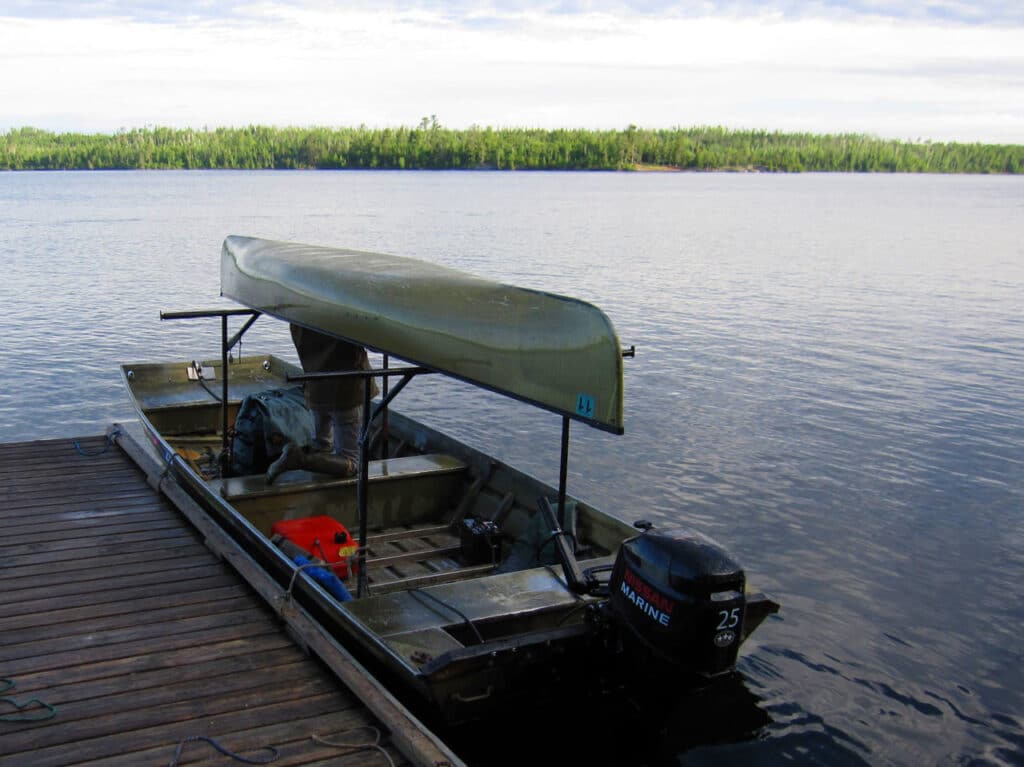
Wilderness advocates last week filed a lawsuit in federal court against the U.S. Forest Service for what the groups say is an “utter failure” to enforce wilderness laws. Wilderness Watch alleges the Superior National Forest is allowing more than double the intended use of motorboats on a handful of lakes on the edge of the Boundary Waters Canoe Area Wilderness.
The conflict dates back to the 1970s, when federal laws were passed to regulate the Boundary Waters as wilderness. One result of extensive negotiations and compromises worked out in Congress in the mid-1970s was allowing some motor usage, but keeping it at or below historic levels.
“It has been over five years, and the agency has yet to even fully satisfy the assessment task agreed to in the settlement,” the lawsuit says. “In the meantime, the wilderness-degrading motorboat activity has only intensified, with each subsequent year bringing new actionable violations of the statutory quotas and wilderness management mandates.”
A primary part of the problem is “towboats” which operate on the Moose Chain of Lakes east of Ely. These commercial boats shuttle thousands of canoeists through supposed wilderness lakes that have remained open to motors, with little limitation. While private parties seeking to use motorboats on the lakes are regulated with a daily and weekly quota system, the towboats take as many trips as their customers request, with no permit required for each trip. The lawsuit points out the 1978 BWCAW Act did not distinguish between private motorboats and commercial towboats, and the entry limits are supposed to apply to all use.
Over the legal limit
Wilderness Watch’s lawyers say that the annual motorboat cap for Moose Lake should be 2,612 total (558 entries for overnight use, 695 for day use on the Moose Chain, and 1,359 for day use on Basswood Lake). In 2018, the most recent year for which data is available, 5,736 motorboats entries were recorded. The number of permitted motor users was below the cap, at 2,369 for the year, but “towboats” operated by outfitters on the chain added another 3,367 trips on the lakes. That adds up to about 38 motorboats on the chain each day, if it’s assumed most motor usage takes place in the quote season of May through September.
Wilderness Watch sued the Forest Service over the same issue in 2015, but settled the suit with an agreement that the federal agency would take two years to study and correct the issue.
In 2019, the Forest Service announced it was seeking public input on motor use and a wide range of other commercial activities in the wilderness. In 2022, Superior National Forest staff said they were planning a “pre-scoping” process to begin gathering feedback.
Wilderness degradation
The advocates now say that the process is taking too long, and motor use continues to degrade the wilderness character of the lakes in question. With so many motorboats on the lakes, few people want to canoe on them, thus contributing to more visitors hiring towboat service to take them to non-motorized lakes.
“The towboats are not ‘towing’ passengers who are otherwise incapable of reaching the area via non-motorized craft; they are like shuttle buses driving canoe-capable clients further afield, where they will engage in more wilderness- compatible travel after first shrinking some of the vast country that makes the wilderness what it is,” the lawsuit says. “Ironically, much of the towboat demand is induced by canoers’ desire to reach distant areas where they can avoid the excessive motor traffic on the towboat-heavy lakes.”
The latest lawsuit is asking the court to force the Forest Service to limit motor use at the 1978 levels. It also seeks an immediate action to block the Forest Service from allowing any commercial towboats on the lakes until a resolution is reached that is in compliance with Wilderness laws.

